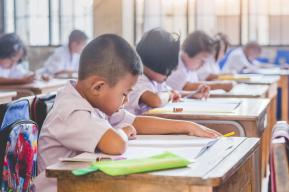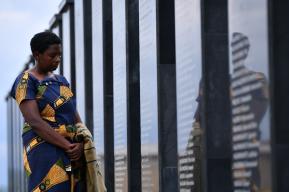
Global citizenship and peace education
Learning how to read, write and count matters – these are the tools that open a window to the world. However, with pressing national and global issues transcending country borders, literacy and numeracy skills may not be enough to make sense of it, pursue one’s dreams and find purpose in life. What a young person will see through this window and how they choose to act on it largely depends on the values, content and context of education.
Global citizenship education (GCED) looks into these elements to support learners of all ages to become ethical, empathetic and respectful human beings who can adapt to the world rapidly moving forward, even amidst its most complex challenges and threats. UNESCO is advancing GCED across subjects and in all spheres of life to provide them with knowledge, skills and attitudes that cultivate tolerance, respect, and a shared sense of belonging to one global community, with the ultimate goal of ensuring human rights and peace.
Youth can move the world
How can we build strong and just societies where democracy and human rights matter amidst the uncertainty and challenges of the 21st century? Young people have an answer.













